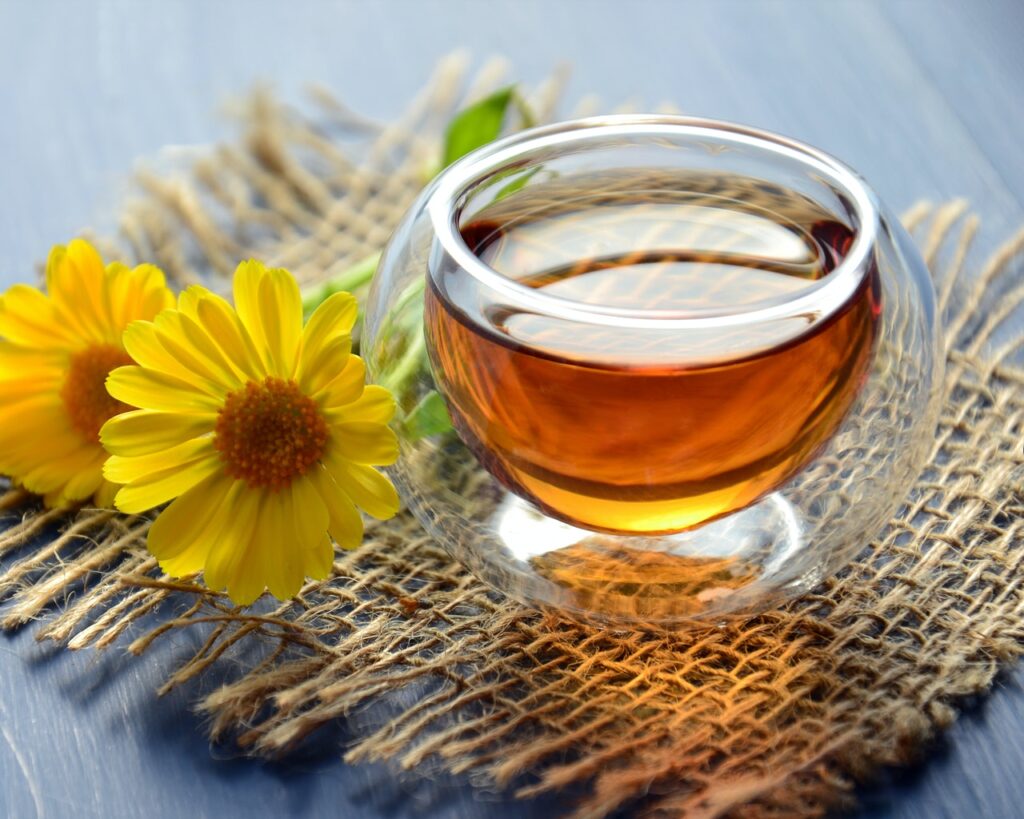:max_bytes(150000):strip_icc():format(webp)/honeydropletforface-6e639624c7f04029a5effd87eda389c2.png)
When it comes to natural beauty remedies, we’ve tried our fair share of DIY masks and are no strangers to bringing out pantry staples—coconut oil, apple cider vinegar, carrots, chamomile, and even goat milk. Now, we’re setting our sights on something even sweeter that might become your next skincare MVP: honey.
“Raw, unpasteurized honey is one of Mother Nature’s power players you definitely want to have on your A-team to get the job done when needed.” dermatologist, Ava Shamban, MD, says.
Why? Well, it has tons of benefits, from unclogging pores and fading acne scars to deeply hydrating dry skin. But since it’s typically used in the kitchen, you might have questions on how to use it for your skin or if it’s even safe to use at all. We spoke with board-certified dermatologists Dr. Shamban and Kenneth Howe, MD, to discover how this common ingredient works wonders for your skin.
Keep reading for expert tips on incorporating honey into your skincare routine.
Meet the Experts
- Ava Shamban, MD, is a board-certified dermatologist and the owner of AvaMD and Skin Five medical spas.
- Kenneth Howe, MD, is a board-certified dermatologist at UnionDerm in New York City.
What Is Honey?
Honey is a sweet, viscous substance produced by bees that is used in cooking, medicine, and skincare. The sweet substance is produced by plant matter, enzyme activity, and live bacteria. According to Dr. Howe, what honey contains chemically will largely depend on what plant the bees are sourcing from.
Honey
Type of Ingredient: Humectant.
Main Benefits: Antimicrobial, moisturizes and hydrates skin, soothes inflammation, and clarifies to open up pores.1
Who Should Use It: All skin types should use it, but it is especially beneficial for dry, sensitive skin.
How Often Can You Use It: Usage depends on the skin concern. It can be rotated throughout the week as a treatment.
Works Well With: Honey can be used alone; however, it should be unpasteurized, natural, and active.
Don’t Use With: Lemon, baking soda, cayenne pepper, or other pantry items.
What Type of Ingredient Is it?
Honey is a natural humectant (aka an ingredient that draws moisture into the skin). If your skin needs a hydrating boost, this is the perfect ingredient. It is antibacterial, anti-inflammatory, and acts as an anti-viral/anti-fungal.2
Benefits of Honey for Skin
“Chief among the benefits is the antimicrobial activity of many honey varieties—it kills bacteria living on the skin. This effect probably explains how honey came to be used traditionally as a wound-healing agent in many different cultures,” says Dr. Howe. Here’s what honey can do for your skin:
- Cleanses pores: Honey is naturally antibacterial, so it makes for a great face wash. Remove dirt and debris with nothing more than a little raw honey—just add water.
- Treat Acne: You can use honey as a cleanser to help prevent certain types of breakouts because of its anti-fungal properties. For a more potent effect, honey can be left on breakouts to help them heal faster.3
- Fade Scars: Honey contains trace amounts of hydrogen peroxide. This might give it mild lightening properties, which is particularly helpful when it comes to resolving pesky post-acne marks and hyperpigmentation.4
- Hydrates Skin: Honey draws moisture into the skin from the air.5 Applying honey on the face is a great way to keep your skin hydrated, glowing, fresh, and supple at all times.
- Helps Skin Conditions: Dr. Howe shares, “One researcher has shown it to treat seborrheic dermatitis, atopic dermatitis, and psoriasis.” Raw honey can also soothe eczema.6
Alangari AA, Morris K, Lwaleed BA, et al. Honey is potentially effective in the treatment of atopic dermatitis: clinical and mechanistic studies. Immun Inflamm Dis. 2017;5(2):190-199. doi:10.1002/iid3.153
Byrdie Tip
If you want to nix a blemish, try dabbing a little raw honey directly on as a spot treatment. “It can be particularly beneficial for acne or blemish-prone skin. In fact, there have been clinical studies proving positive results both in lessening size and duration of blemishes,” says Dr. Shamban.
Side Effects of Honey
It is important to know your allergies and how your skin will react to a new product. Allergies to bees, pollen, or bee venom can cause an allergic reaction to honey if contaminated. Drs. Shamban and Howe agree there are no expected side effects, but anyone can be reactive, allergic, or irritated. If there is a reaction after a patch test, discontinue usage.
How to Use It
To reap the full benefits of using honey in your skincare routine, try a serum or moisturizer already infused with honey. You’l get all the soothing, nourishing benefits without the mess of using raw honey.
When using raw honey, apply it after wetting your face, or else it will be too sticky. Once it mixes with water, the honey’s natural tackiness will be neutralized. Be careful to avoid getting the honey in or around your eyes. Dr. Shamban suggests a raw form of manuka honey from New Zealand because manuka honey is antibacterial and bacterial resistant. “It can, therefore, last for years or even decades in some cases without bacteria, fungus, or any mold,” she says.
DIY a Raw Honey Facemask
To make a raw honey face mask, take a tablespoon of honey and spread a thin layer on damp skin. Leave it on for about 20 minutes before washing it off. You’ll find your skin is left instantly nourished.
Can You Leave Honey On Overnight?
According to the experts, leaving honey on your face overnight is not a good idea. Not only can it create a bit of a mess on your sheets, but it can also attract dirt, dust, and debris that may irritate the skin or cause breakouts.

